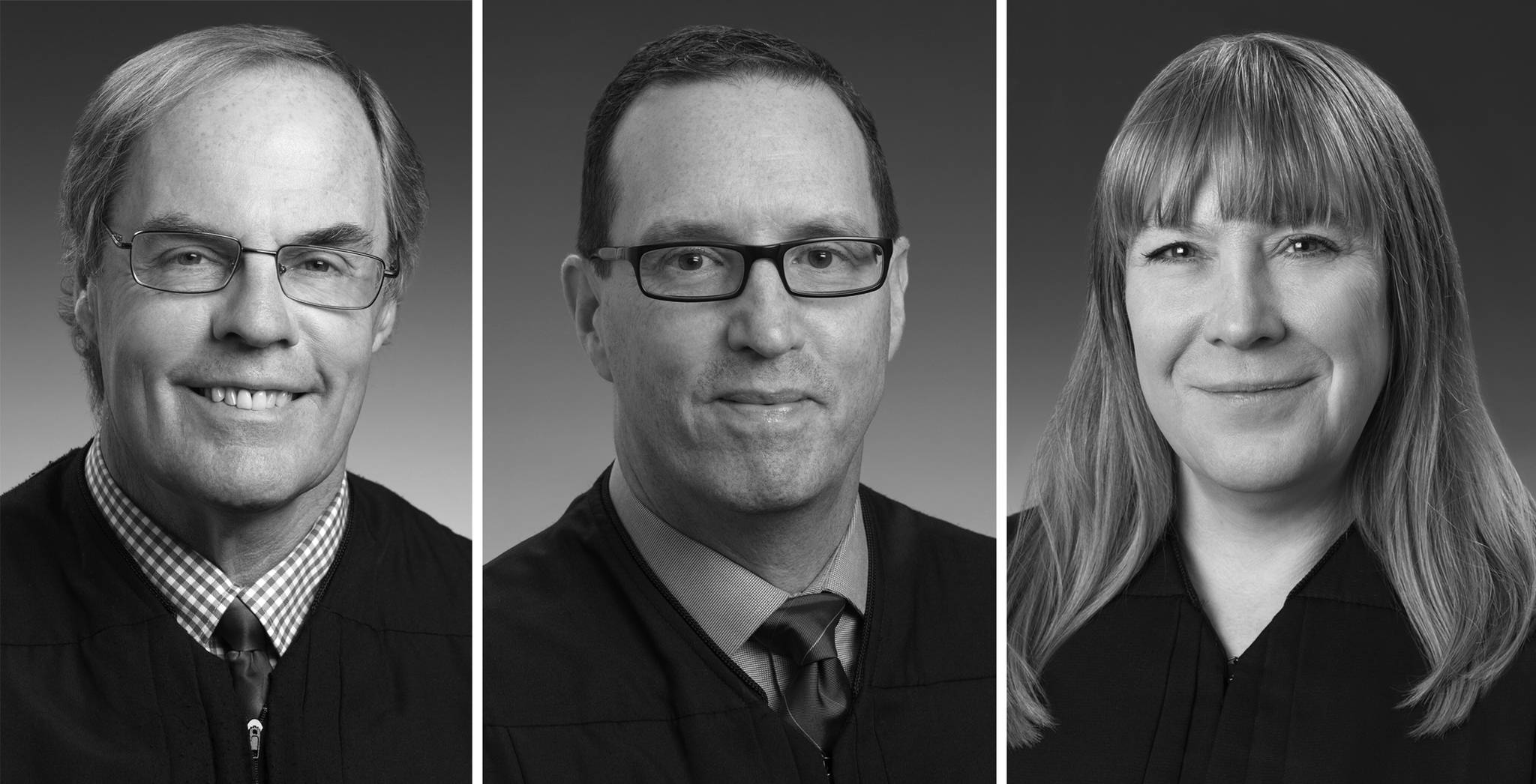They’re on the ballot, but you won’t see any ads for them.
On Nov. 6, Alaskans across the state will be asked to decide whether to keep 15 district and superior court judges on the state bench.
In Alaska, judges don’t run for election. Instead, the state’s merit-based selection process means voters have a simple choice: Keep the judge or fire them. Pick the latter, and the governor gets to appoint a new judge under the advisement of the nonpartisan Alaska Judicial Council.
The Alaska Constitution prescribes a strictly nonpartisan judicial system, and the state’s code of judicial conduct prohibits most political activity by judges. Instead, the Judicial Council examines their records, conducts surveys, and publishes the results.
This year, the council is recommending all 15 judges be retained by voters.
“We’ve got one of the most — if not the most — comprehensive judicial evaluation systems in the country,” said Susanne DiPetro, executive director of the council.
The council surveys attorneys, police, court employees, jurors and social workers about their experiences with the judge. It collects public testimony, asks for specific feedback from attorneys who had cases in front of that judge, and examines how often a judge is disqualified from a case, disciplined or was found to be wrong on appeal.
It’s rare for the council to recommend voters reject a judge. It has happened only 12 times since 1976, according to figures kept by the council. It last happened in 2014, but voters kept that judge — William Estelle of Palmer. Estelle is on the ballot again this year, but this time the council is recommending that he be retained. (Some council members abstained from that vote; the vote to retain everyone else was unanimous.)
This year’s election features no supreme court or appeals court judges; instead, voters will be asked to pick or kick locals, and not everyone gets to vote on every judge.
Southeast Alaskans will be asked to decide three judges. Anchorage, Kodiak and Southwest voters will consider nine officials. In the Interior, three will be on the ballot. No judges are on the ballot in the Second Judicial District, which covers the North Slope and Western Alaska.
In Southeast, which is covered by the First Judicial District, Juneau District Court Judge Kirsten Swanson, Ketchikan District Court Judge Kevin Miller and Ketchikan Superior Court Judge William Carey are on the ballot. The name of each will appear on the back of the ballot, next to Ballot Measure 1.
State law provides that a new district court judge gets at least two years to establish a track record before being subject to a retention vote. After that first vote, they’re subject to votes every four years. A superior court judge gets three years to establish a record, then is subject to a vote every sixth year after that first vote.
For Swanson, who was appointed in 2016, this will be her first time on the ballot. Her coworkers give her high marks, according to the Judicial Council survey. She received a 4.7 out of 5 possible points from attorneys, 4.5 out of 5 from police officers, and 4.8 out of 5 from court employees. On the surveys, 1 is the lowest possible score, 5 is the highest.
Swanson recused herself from one civil case and no attorney formally questioned her assignment to any case. She has not had any cases appealed and decided since her appointment, and she has never had any pay docked for finishing cases late.
Miller was appointed to the court in 1999 and received an overall rating of 4.8 when all the surveys are averaged. Carey has been on the Superior Court since 2008 and has an overall rating of 4.6 when all surveys are averaged.
Elaine Andrews served as a judge in the Anchorage District Court and Anchorage Superior Court before retiring. She now chairs the Alaska Bar Association committee for fair and impartial courts.
She said that from the judge’s perspective, elections can be a discouraging process if voters don’t pay attention.
“It’s very discouraging when 35 or 40 percent of the population, right out of the box, says no to every judge,” she said.
In her experience, people vote “no” because they had a bad experience with the court system, they don’t believe Alaska should have a court system, or because they don’t know much about the judges on the ballot.
“I think we have some responsibility as lawyers and judges to continue to educate the public,” she said.
Further information about each judge is available in the Alaska Division of Elections voter pamphlet and at the website of the Alaska Judicial Council.
• Contact reporter James Brooks at jbrooks@juneauempire.com or 523-2258.

